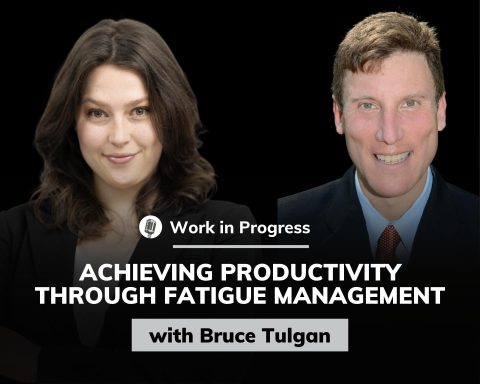Have you ever wondered what’s the reason behind your constantly feeling tired? Are your energy levels failing you recently, where you find it difficult to either concentrate or get your work done? It may or may not have occurred to you, but a potential reason behind ongoing lethargy is a phenomenon known as fatigue.
What is fatigue?
Fatigue is defined as the state of constant physical and/or mental exhaustion, usually distinctly characterized by the fact that this feeling of tiredness does not easily go away even after resting.
There are multiple types of fatigue that can exist separately or simultaneously. Even though they are different, they are all very serious and all carry the same weight. The three main types of fatigue are:
- Physical Fatigue is the state of extreme physical exhaustion coupled with a decreased capability to partake in physical tasks and activities such as manual labor.
- Mental Fatigue is a case of extreme mental depletion characterized by a diminished capacity to participate in cognitive processes such as decision-making.
- Emotional Fatigue is when emotional exhaustion is experienced alongside the diminished ability to participate in emotional activities such as empathizing with or caring for others.
Fatigue is a matter of significant importance, especially when we consider some of its aftermaths, particularly in the context of productivity. In a study conducted by diFabio et al., in 2021, it was found that work-related fatigue affects 35% of employees in the EU and 38% of employees in the US.
Furthermore, constantly experiencing fatigue carries grave risks, where a report by the NSW Government for road safety states that between the years 2008 and 2016, there were 532 fatal accidents, resulting in 583 fatalities, with fatigue accounting for 17% of all fatalities. These numbers set the stage for the vitality of tackling fatigue.
Symptoms of fatigue
As mentioned earlier, fatigue is distinct from other feelings of tiredness and exhaustion, in that it is particularly unique for its prolonged period. Fatigue can lead to an array of physical, mental, and emotional symptoms, some of which include:
- Chronic tiredness or sleepiness
- Headaches
- Dizziness
- Sore and aching muscles
- Slowed reflex responses
- Impaired decision-making and judgment
- Moodiness
- Irritability
- Appetite loss
- Poor concentration
If you experience any of the above consistently, then it is time to take into consideration that the matter is quite serious and requires resolving. So this begs the question, how can fatigue be resolved?
Remedies and ways to overcome fatigue
One practical way to start tackling fatigue is by beginning at home. Try to get a good night’s sleep daily. Eat a nutritious and well-balanced diet. Drink plenty of water and exercise regularly. Incorporate relaxing activities into your lifestyle such as meditation and yoga.
To deal with fatigue, you also need to go beyond the realm of tending to your physical needs and also resort to solving what affects your mental well-being. Do so by ensuring you have a good work-life balance by maintaining a balanced professional and personal schedule. Seek to reduce stress in your life as much as possible by eliminating stress-inducing factors. For instance, you can take a break from work or work on relationship issues. Here are more ways to keep fatigue at bay:
Adopt a healthy lifestyle
Home care remedies are a good start and can help, but what matters is sustaining the practices in the long run. To keep fatigue at bay, you should adopt a healthy lifestyle. Firstly, watch out for your food intake, it is after all your main source of energy, and how it is handled is essential. Make sure to not skip out on your meals, because going too long without eating can lower your blood sugar levels.
Target the psychological roots
According to studies about fatigue, nearly 50-80% of fatigue cases are mainly due to psychological factors. To resolve that issue, there are some steps you can take such as sharing and talking about what is bothering you. Evidence suggests that talking therapies like counseling or Cognitive Behavioral Therapy might help in combating fatigue. Assess your lifestyle and consider whether or not you are putting yourself under excess or unneeded pressure. Ask yourself if there are any persistent issues in your life that might be causing you to feel anxious or depressed for extended periods.
Seek professional help
Finally, in some situations, fatigue can indicate a symptom of an underlying medical condition that would require professional attention. Professional counseling can serve to be beneficial in resolving matters like family, career, or personal concerns. If after implementing good practices and your levels of fatigue have not dialed down, then it would be wise to consult a medical professional.
In conclusion
To sum it all up, experiencing tiredness and exhaustion occasionally is a normal occurrence in one’s day-to-day life if not even inevitable at some point. However, it becomes concerning when these occurrences are ongoing and consistent — then interference and termination are required.
Fatigue is problematic but not an impossible feat to tackle. With the right approaches and methods, it can be dialed down and eradicated. Finally, acknowledge that, if you are experiencing fatigue, there is a reason behind it and that it did not stem out of thin air. Aim to identify what the cause is and seek to target and eliminate it, to prevent the recurrence of fatigue again to ensure the preservation of your physical and mental well-being, which are after all our greatest and most important assets.
If you would like to take this reading further, there are more in-depth resources available at the Personal Productivity Science Labs that tackle the topic of fatigue. Based on the research of the Institute for Life Management Science, the lab produces courses, certifications, videos, and other learning materials. Visit the Personal Productivity Science Labs today.



